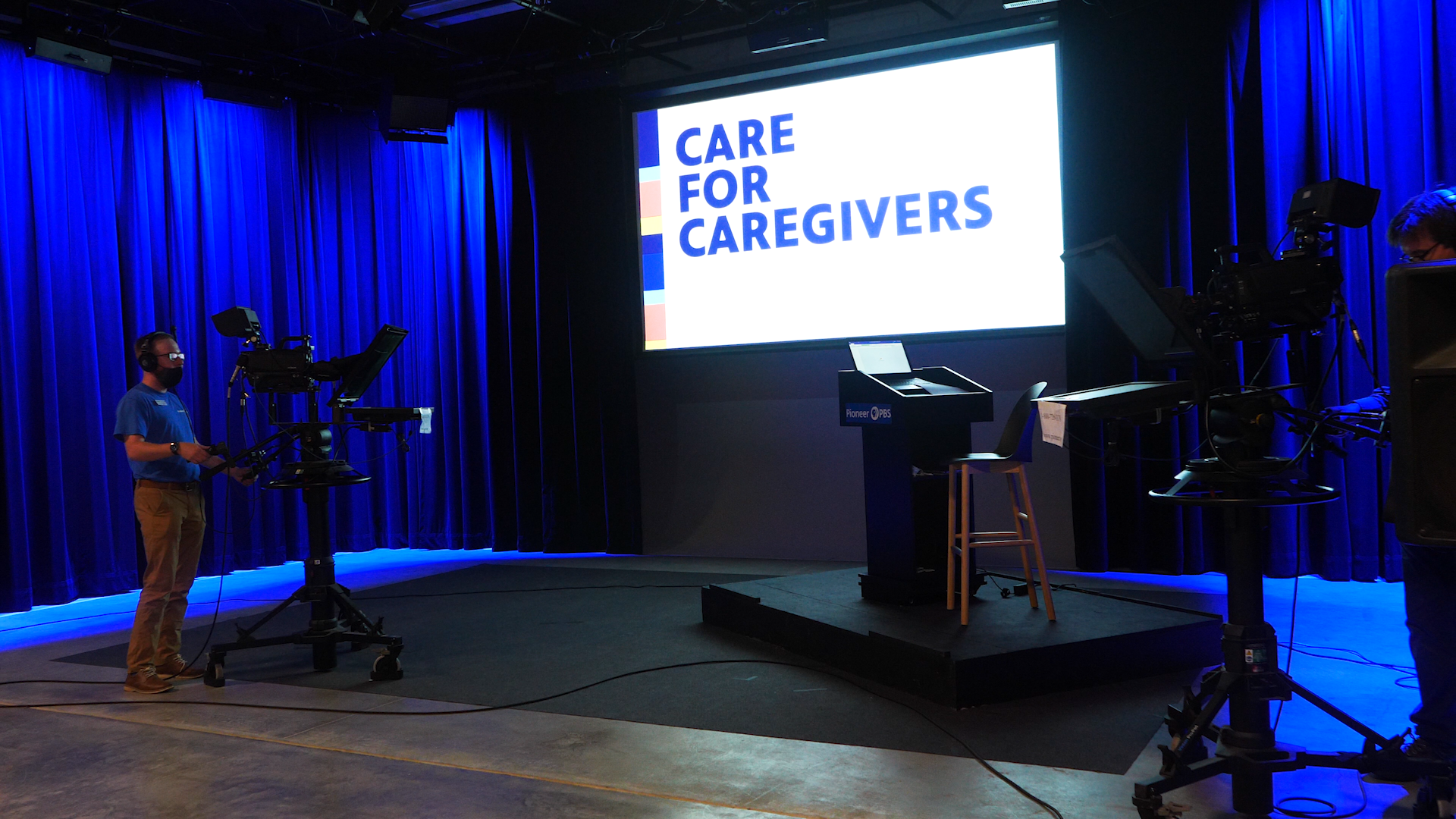Now let's meet a caregiver who fills this profile. My mom, Carol Anderson, is also a part of my grandmother's caregiving network, which includes my mom's siblings and their kids, along with hospice healthcare workers.
"I retired two and a half years ago. I worked at Allina Abbott Northwestern Hospital in the cardiovascular ICU," she said. "I'm a care... What would I call it? Support caregiver. So, my mom is 89 years old and I live in Minneapolis and she lives in Alexandria, which is about 120 miles from here."
She'll drive about once a week to see grandma. Because she'd worked in cardiovascular nursing for over 40 years, my mom tries to go to most of grandma's doctor appointments. While she said she doesn't think that her caregiving contributions are more significant than any others, she does think that her unique professional background gives her leverage here.
"And so yes, answer to your question. I think it would be harder if I didn't have the medical background that I do," she said."
I brought my mother into this conversation to show how close this issue is to many people. It's lucky really that my retired mom has both the medical background and now the time to be able to direct her expertise in this way.
"I think the hardest part ... is understanding the medical system and just the different physicians that get involved," Anderson said. "You know, as people get older, they get cardiologists, they get different specialists and then it becomes really hard to coordinate all of that. And that's what I was able to do because I understood that part of what happens."
A reoccurring theme by many attendees at the Care for Caregiver event was how to have healthy conversations about end of life care. One organization facilitating these conversations is The Remember Project. Danette McCarthy, the founder of The Remember Project was also in attendance at the event.
"In my field of working with The Remember Project, we use theater as a tool to invite a conversation and it's exciting to me because most of us would rather talk about those people on the stage or those people in the film than we would like to talk about our own stories," McCarthy said. "So it's really exciting to see that — and maybe this has been increased or exacerbated because of the pandemic — we humans are social, we want to talk with each other, even about scary things. And so it's very exciting to see that films, videos, theatrical productions can be so powerful in building that bridge and opening a heart toward a conversation. I think our communities are ready."
Topics around death, dying and aging are heavy. They're messy and hard to talk about. But what if we, as a society, started thinking about aging as a privilege? Not all of us get to age and age well. Maybe this will help us start thinking about aging, death and dying as things to plan and celebrate, rather than a conversation to have later.
Visit pioneer.org/caregiver/resources for more information.




